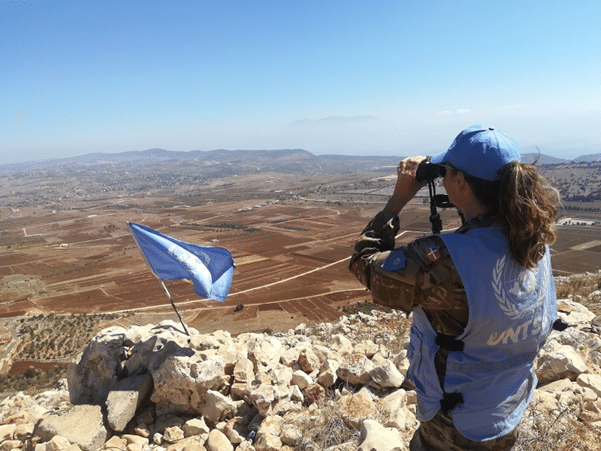UN Peacekeeping 75. Commander Janne Kristina Larsen has served in the Danish military and in peacekeeping from the glaciers of Greenland to the Golan heights. Indeed, after serving in the Danish Navy in Nuuk in Greenland, she joined UN peacekeeping. From 2018 to 2019 she oversaw deployments of military observer of UNTSO, the UN Truce Supervision Organization. In October 2022, she returned to UNTSO and now leads a liaison office.
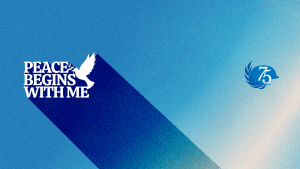
No female role models
“Although I had no female role models when I applied to be a peacekeeper, I always knew I wanted to be part of something big and make a difference” Commander Larsen says. “Indeed, my motivation to join the United Nations and play my part for peace in the Middle East had been growing for more than 10 years before I joined the UNSO, my first deployment to the United Nations Truce Supervision Organization (UNTSO) was a dream come true.”
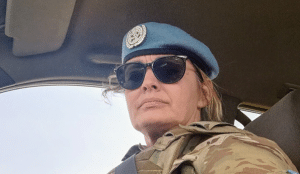
“Just do it!”
“I served as the Chief Military Personnel Officer in Jerusalem and, among other things, was responsible for ensuring that the Mission recruited a diverse pool of well-trained officers, including female peacekeepers,” Commander Larsen says.
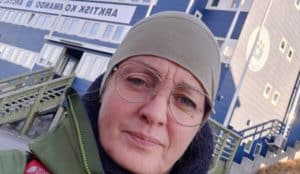
“The experience helped me to understand the importance of deploying women peacekeepers to volatile security environments. It was fulfilling to see how female military observers were significantly breaking down communication barriers with women and children in communities we served. I always tell young women who are considering serving under the blue flag to “Just do it!”. Because once you become a part of the UN family, you will make a difference and your confidence will receive a renewed boost to achieve great things.”
Male dominated environments
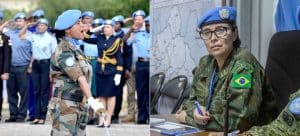
UN Peacekeeping has been at the forefront of advancing the Women, Peace and Security agenda since it was launched with the adoption of United Nations Security Council Resolution 1325 in 2000. UN Peacekeeping has put women’s priorities and rights at the heart of peace and political processes, as well as by increasing women in peacekeeping and supporting women as peacemakers in their communities.
“It is true that female peacekeepers face harsh realities during peacekeeping missions. First, in the communities we serve because of how male-dominated they tend to be. For instance, contrary to what happens in northern Europe, I discovered that I could not always talk to or shake hands with a man due to religious or cultural beliefs,” says Commander Larsen.
However, there is no hiding that participation in Peacekeeping can be specially challenging for women.
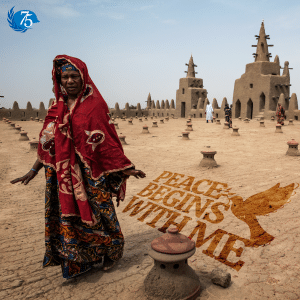
“Deployments are generally for a period of twelve months. That is a long time to be away from home if you are a young mother, or if you want to explore other career paths within your country’s army,” she points out.
Larsen is also convinced that UN Peacekeeping can improve when it comes in working conditions for female peacekeepers.
“I believe increasing women’s participation in UN peacekeeping should go hand-in-hand with improving water, sanitation and hygiene facilities in field locations that better cater to the needs of women. The organization needs to ensure that living conditions for peacekeepers are respectful of all.”
See also here.

